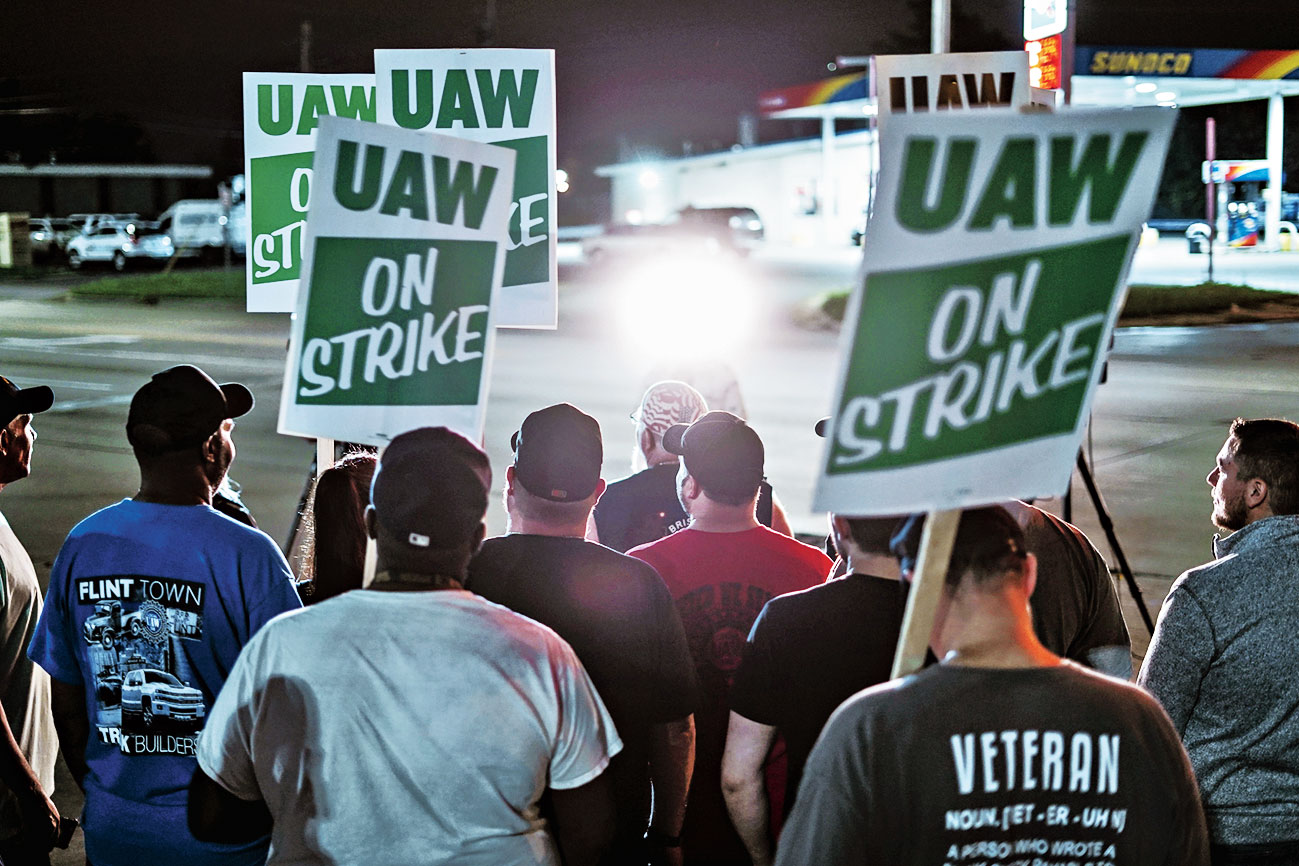The United Automobile Workers union went on strike at General Motors, sending nearly 50,000 members at factories across the midwest and south to picket lines on Monday morning.
With the two sides far apart in the talks, UAW regional leaders in Detroit voted unanimously on Sunday morning to authorise the strike, the union’s first such walkout since 2007. It began at midnight, after the union’s current bargaining agreement expired on Saturday.
“Today, we stand strong and say with one voice, we are standing up for our members and for the fundamental rights of working-class people in this nation,” Terry Dittes, a union vice president, said after the meeting.
The UAW is pushing GM to improve wages, reopen idled plants, add jobs at others and close or narrow the difference between pay rates for new hires and veteran workers. GM wants employees to pay a greater portion of their health care costs, and to increase work-force productivity and flexibility in factories.
Although the company has been earning substantial profits in North America — and it made $8.1 billion globally last year — it has idled three plants in the US as car sales slide and overall demand for vehicles weakens. The strike is unfolding as President Trump’s trade war with China wears on manufacturers and has stirred fears of a slowdown.
It could disrupt local economies in factory towns in several swing states like Michigan and Ohio, where President Trump has promised to increase manufacturing jobs. But any impact on the broader economy will depend on how long it lasts.
The auto industry, even if it is far from its employment heights in the 1970s, remains crucial to the economy, counting some 220,000 people who work to manufacture cars.

